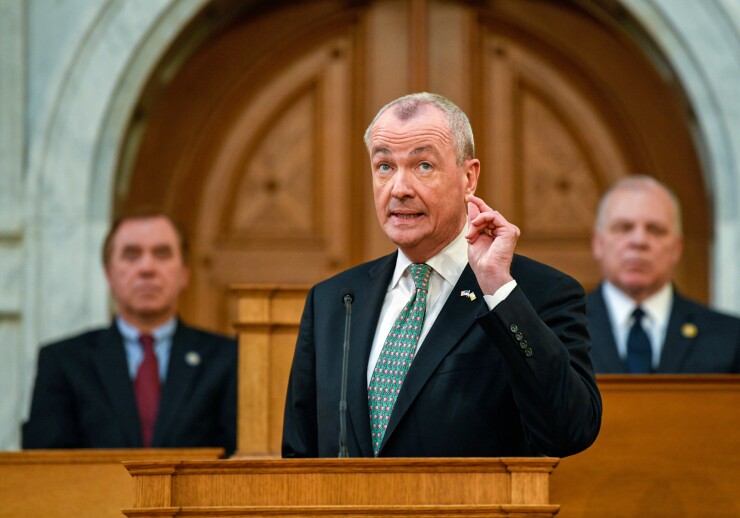New Jersey Gov. Phil Murphy signed a $38.7 billion 2020 fiscal year budget Sunday lacking a large revenue raiser he has long campaigned for.
The Democratic governor abandoned his proposal to raise tax rates on incomes above $1 million to 10.75% from 8.97% after receiving staunch opposition from his own party that controls the state legislature. The tax, which he campaigned for during the 2017 gubernatorial election, was expected to raise about $500 million of new annual revenue for the state had it been enacted. In his budget remarks while signing the new budget just before the midnight July 1 deadline, Murphy continued his push on the need for increasing taxes on the state's wealthiest.

"New Jersey today has more millionaires than ever — not fewer — and their numbers are growing," Murphy said. "We already have more millionaires per capita than any other state in the nation and this modest tax — barely 2 cents on every dollar of income over $1 million — will not push them out."
State lawmakers also rejected Murphy’s bid for a millionaire’s tax last year leading Murphy to sign a
Despite not receiving support for his millionaire’s tax, Murphy can still claim victory with his
“It undercut the governor’s demand for the millionaire’s tax,” Dworkin said of New Jersey’s April revenue windfall with gross income tax payments soaring 57% compared to a year ago. “It was huge because in order to fund everything from the legislature’s perspective you didn’t need a millionaire’s tax.”
The signed budget directs $75 million of new direct funding for cash-strapped New Jersey Transit, which is $50 million more than what Murphy originally pitched. Murphy also signed an executive order to deposit $401 million into the state’s rainy day fund, which has sat dry since 2008.
The adopted 2020 fiscal plan includes a record $3.8 billion pension contribution marking a $554 million budgeted increase into the severely underfunded system. The state will be at 70% actuarially determined contribution level and is on track for full ADC pension funding in 2023. A high pension burden has dragged New Jersey’s general obligation bonds to the second-lowest bond ratings of all U.S. states at A-minus by S&P Global Ratings, A3 by Moody’s Investors Service and A by Fitch Ratings and Kroll Bond Rating Agency.
Marc Pfeiffer, assistant director of the Bloustein Local Government Research Center at Rutgers University, said that while the budget takes some steps to bolster needed funding for issues such as pensions and NJ Transit funding, long-term challenges will still linger.
“I would call this is an incremental budget,” Pfeiffer said. “There are still larger elephants in the room that haven’t been addressed.”
Murphy line-item





